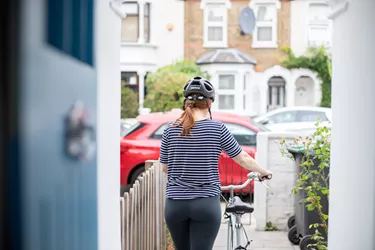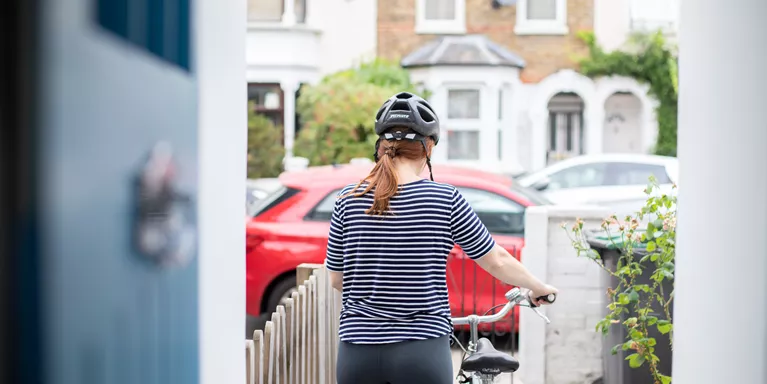Why BPD makes us special
Borderline personality disorder makes life difficult, Lou says, but it also endows people with great qualities.
Borderline personality disorder (BPD) also known as emotionally unstable personality disorder is a very misunderstood mental health condition. I was diagnosed with BPD in 2016 at the age of 37. I had felt let down by mental health services, passed from pillar to post, not listened to and given various labels all of which can be symptoms of BPD, for example depression. It was like someone had finally shone a light upon my life. I was at the same time relieved as so many things made sense, yet also devastated.
“My BPD never impacted me at work, and all the plus sides of the condition meant nursing suited me.”
I was working within the NHS as a nurse at the time. I believe I was good at my job, I held responsible posts, including being a resuscitation trainer and loved to work in fast-paced places such as A&E. However, I struggled to hold down a full-time job due to the impact my mental health had on my life outside of work. I went to bank nursing, which involves being able to pick the days and times you work. This meant I could pick hours around my health. My BPD never impacted me at work, and all the plus sides of the condition, such as my empathy and compassion, meant nursing suited me.
Let’s talk about drive. That’s what they don’t tell you about BPD – these plus sides. If I want to do something, I do it. I hold a foundation degree, two degrees, a post-graduate certificate and a First Responder (FREC3) qualification. I throw myself into life when I am present in it in my head. But there are the bad days that nobody but those close see, when life is too much, when I don’t want to be here. BPD has a 1 in 10 completed suicide rate in the UK. This is no fairy-tale, especially for those that cannot gain access to services.
Regulating emotions
BPD has a diverse range of symptoms that manifest individually, but the main trait is we find it hard to regulate our intense emotions and struggle with relationships. BPD has been demonised in the media, especially recently with many people believing that those living with it can be manipulative or dangerous due to their symptoms, so it’s important to remember that most people with BPD are just struggling with their sense of self and their relationships. A percentage of all people are manipulative and dangerous. Unfortunately, it’s their character, and it’s important not to instantly label those with mental health issues as such.
So, what’s it like living with BPD? Hard. If I’m happy, I’m sky high, but if I’m depressed, I want to hurt myself and can often feel that life is not worth living. It’s incredibly tiring being on this rollercoaster and those that live with BPD’s emotions can fluctuate instantly, lasting only minutes, to hours, to days, but at this ever-revolving rate. The intensity is breathtaking. Literally sometimes.
We feel everything, all at once and then sometimes nothing, numbness, in a bid for our tired minds to try to cope with this. I feel guilt and a sense of shame as I hate myself a large amount of the time. It’s the condition, and this in turn creates depression.
Moving forward
So how do you move forward with this debilitating monster that you live with?
This is where my frustration lies – the lack of treatment available is overwhelming. Places are often waitlist only and these can be long, and considering the suicide rate it is truly heartbreaking. The lack of understanding within some health services mean diagnosis can be difficult to obtain or overlooked and help can be too late.
I am fortunate now (and believe me this has been a long journey), to have undergone a year of cognitive analytic therapy (CAT), a talking therapy that mainly focuses on relationship patterns. CAT was a huge battle to gain access to due to many mistakes made and misdiagnosis in early life too. I am now just starting my journey in structured clinical management, a treatment for people who have personality difficulties.
“We are wonderfully emotionally vibrant individuals that need real help. Do not be disheartened.”
It can take a lot of door knocking to arrive at a destination. These are giving me the tools to help manage my condition more effectively, to learn to live with myself. To like me. that’s the kicker with BPD; drugs don’t work. There is no medication specific for BPD, only medication that may help may with some symptoms such as anxiety. So talking-based therapy is the route to real help, but resources as I’ve said are lacking.
My advice for anyone living with this condition please don’t give up. I know – believe me I know – it’s hard. Stand up for yourself and what living with this means. We are wonderfully emotionally vibrant individuals that need real help, and do not be disheartened. It can take a lot of door knocking to arrive at a destination.
I no longer work as a nurse as a life move meant relocation to somewhere rural and following my dream of being an artist. I still volunteer as a first responder, being on call when I am able. I’m also aware though I’m a work in progress, I’m learning to live with this, to accept me – and that’s where the key lies. Once you are ok with you, you allow yourself the possibility that maybe you can change thought patterns and negative behaviours; that there is life passed this, that BPD can be your friend.
That’s when the plus sides can start to outweigh the negatives. Bad days will hopefully become just that – a bad day, not to be dwelled on. Everyone has relapses, but they are just that – a moment in time. Always try to remember the positives. BPD give us strength and perseverance. These are fantastic qualities that help to make us special.


Information and support
When you’re living with a mental health problem, or supporting someone who is, having access to the right information - about a condition, treatment options, or practical issues - is vital. Visit our information pages to find out more.
Share your story with others
Blogs and stories can show that people with mental health problems are cared about, understood and listened to. We can use it to challenge the status quo and change attitudes.

















